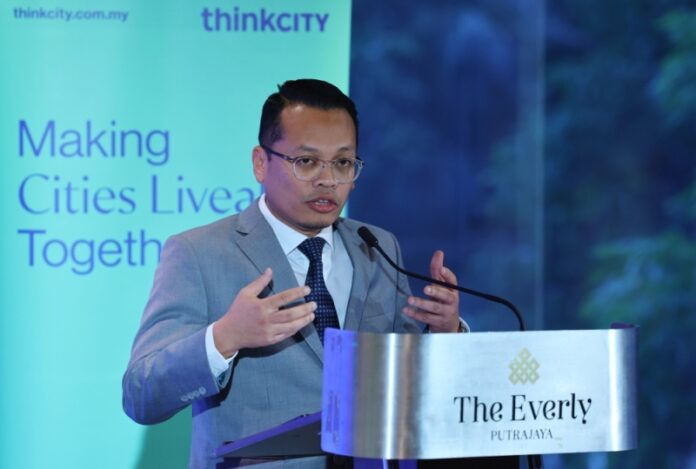PUTRAJAYA, Jan 31 — The government cannot fight climate change on its own as it requires the buy-in from all sectors, from the public and private sector as well as at the sub-national level, said Natural Resources, Environment and Climate Change Minister Nik Nazmi Nik Ahmad.
He said one such effort is the Penang Nature-Based Climate Adaptation Programme (PNBCAP), a nature adaptation programme for the urban areas of Penang that addresses the issues of heat stress and flooding while strengthening social resilience and institutional capacity.
Nik Nazmi said the programme includes engagements with stakeholders from civil society and vulnerable groups to achieve its goals that will benefit all levels of society in Penang.
“The PNBCAP is such a promising concept, perhaps even a game changer,” he said in his speech after witnessing the signing of the cooperation agreement between Think-City and the United Nations Human Settlement Programme (UN-Habitat) for the PNBCAP, here today.
Also present were Penang Chief Minister Chow Kon Yeow, special advisor to the Executive Director of UN-Habitat Neil Khor and Think City managing director Hamdan Abdul Majeed.
Nik Nazmi said he hoped that PNBCAP could serve as a model for Malaysian urban areas across the country in fighting climate change, adding that although Malaysia’s carbon output was only 0.69 per cent compared to larger and developed countries, the country is still vulnerable.
“Against the backdrop of the scientific evidence of the change in weather patterns that are currently occurring, we are also witnessing the consequences of such alterations via the increase in natural disasters such as floods, landslides, and rising heat levels affecting the people,” he added.
Meanwhile, Chow in his speech said PNBCAP, which has been co-created by the Penang state government, local authorities and related government agencies, is a multilateral initiative to enhance urban resilience and reduce human and ecosystem vulnerability to climate change impacts and extreme weather events through the implementation of nature-based solutions.
















